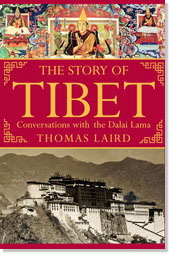
Image via Nullius in Verba.
Title: The Demon-Haunted World: Science As A Candle in the Dark
Author: Carl Sagan (my hero!)
Year of Publication: 1996
Genre Keywords: alien abduction, aliens, astrology, belief, credulity, critical thinking, culture, debunking, false memory, ghosts, hallucinations, history, human error, logic, reason, religion, science, skepticism, thought.
Summary: Brilliant popular scientist Carl Sagan takes on a culture of logical laziness in this readable and eloquent volume all about the errors we as human beings make in knowing and interpreting the world around us. He describes typical thinking errors like confirmation bias (our tendency to give more weight to information that supports what we want to believe), inconsistent logic, or confusion between correlation and causation. Along the way, he takes the American government and educational system to task for failing to create a citizen base with the knowledge required to think critically about information presented to them. He acknowledges, though, that it’s hard for governments to promote critical thought, lest they find themselves held accountable by a tough-to-manipulate electorate. For this reason and many others, Sagan argues convincingly, the world needs more skeptics, ready and willing to ask questions and ruthlessly demand the facts.
Who’ll Love It: If you’ve ever made the decision to doubt the received wisdom of any of the authorities in your world, at least some of Sagan’s words will resonate with you. Certainly he’s got a way with words and some highly amusing anecdotes. And fans of the Cosmos television series will practically hear his voice coming through the pages! But be warned – Sagan, like a proper skeptic, holds nothing sacred, and he does discuss ideas that will challenge any reader who takes anything on faith.
Carl Sagan is the reason Richard Dawkins and I agree on anything. Dawkins said in his review of the book, “My candidate for planetary ambassador can be none other than Carl Sagan himself”. Amen! (Can you say ‘amen’ to Richard Dawkins?)
Want More? If Sagan’s words resonate deeply with you, or if they whet your curiosity and you’d like to learn more, I recommend the Center for Inquiry as a great resource. I’ve been following their “Point of Inquiry” podcast, and I find it fascinating, intelligent, and appealing. And I’ve just learned they have another pocast, “Center Stage” – I’m headed straight to iTunes to sign on. Check out their website for more on the very ideas Carl Sagan talks about in this book.





